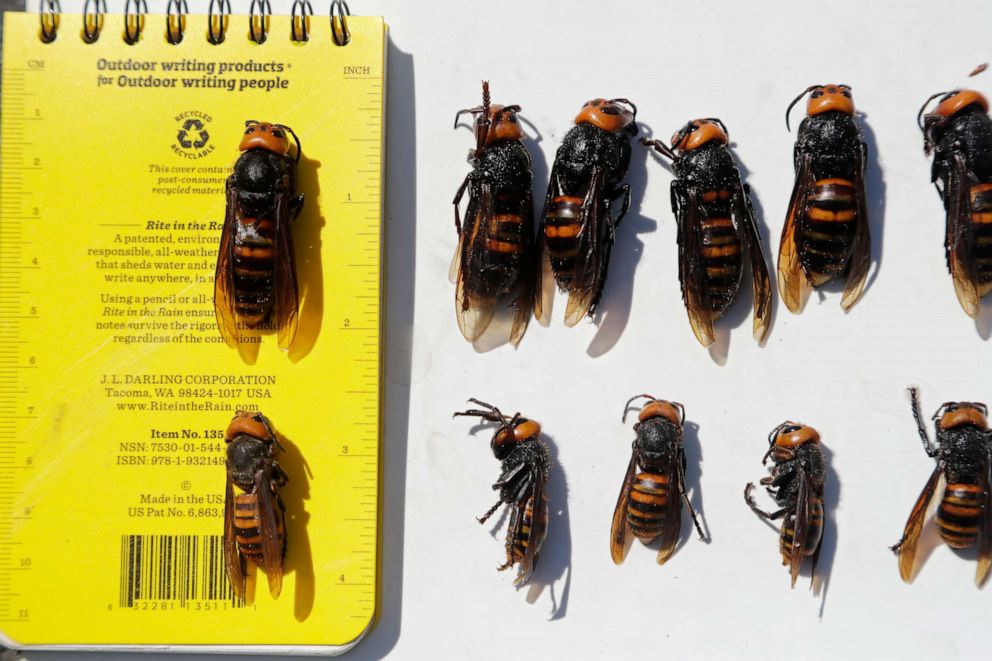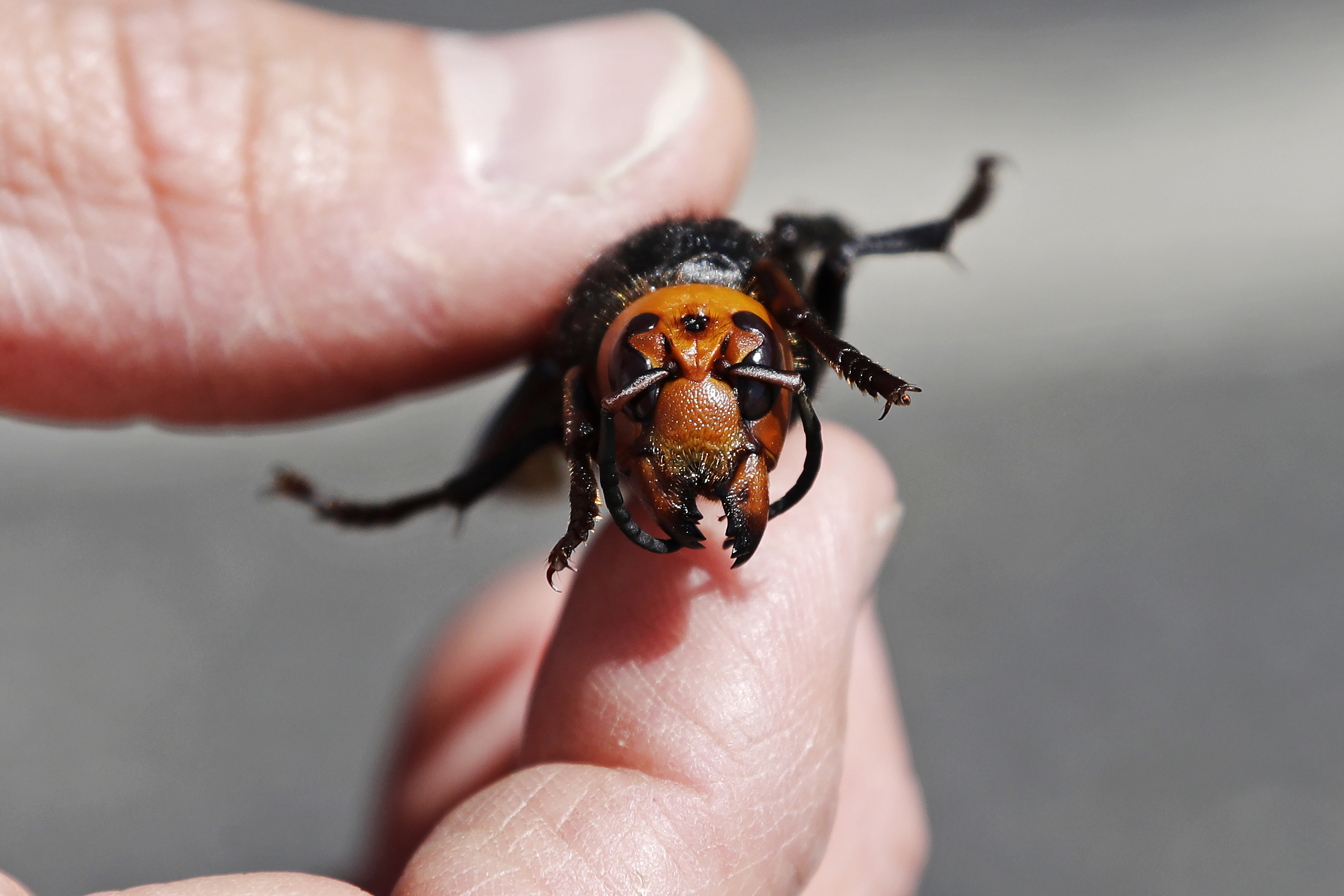How concerned should the US be about ‘murder hornets’?
An entomologist tackles the question on ABC News Radio's "Perspective" podcast.
Just a couple weeks ago, Americans found out about a seemingly menacing 2-inch insect dubbed the "murder hornet," which recently made its way to the United States. The hornet is known to enjoy feasting on honeybees, and has been spotted in Washington state. According to scientists, a sting from this insect can be fatal.
ABC's Alex Stone reported for ABC News Radio's "Perspective" podcast on these giant hornets, and said that of all the things people could be worrying about right now -- amid the COVID-19 pandemic -- murder hornets should not be one of them.
Listen to the full interview with Cheri Preston and the rest of this past week's highlights here:
The massive bees have gained much traction on social media and newscasts as of late, but it seems "The Simpsons" predicted their terror years ago, in a 1993 episode.
So are these hornets a big risk, or is it just hype at a time in which people are on edge anyway?

Washington state entomologist Dr. Chris Looney has been checking traps, looking for the Asian giant hornet -- the actual name of the insect.
"The 'murder hornet' moniker has created a lot of fear and hysteria," Dr. Looney explained. "That's probably overblown. I mean, the human health risks are real. If you are one of the people that is unlucky enough to stumble into a nest and get stung, that's definitely going to hurt if you're allergic. You could go into shock. And every year there are people in Japan that are hospitalized for multiple stings, and some even die. But on the grand scheme of risk to human health, it's low compared to all the other stuff we do every day."
The hornets aren't out hunting humans to sting; they really want nothing to do with them. They do try to invade honeybee hives, though, which could be a problem for beekeepers.
"My personal concern is what will they do to the ecosystem? It's an apex insect predator. They eat other insects, they could displace native stinging Hymenoptera who are really important to where we live," Looney said.
Japanese researchers say this isn't something to blow off and it should be taken seriously. It could be as simple as screening beehives, but the impact on beekeepers is still unknown.
Despite the hype, no one really knows if the hornets are established in the United States.

"We do not know how they got here, and we also don't know if they've been here for a while. They could've conceivably been percolating on the landscape for a bit," Looney said.
It's very possible that the hornets arrived in the United States through international cargo.
Once established, the queens will hibernate by themselves in pockets of soil, and it only takes a few fertile queens to set up a winter sleep -- until they wake up in the Pacific Northwest and continue with their hornet lifestyle.
Two dead hornets were found in Washington state last year, and a nest was found in Canada last September. The public concern has only just started, and it is unknown what would happen if the bees became established in the U.S.
Dr. Looney said he would like to keep them out of the country or remove them if they are here, but as of now, his teams haven't found any.







